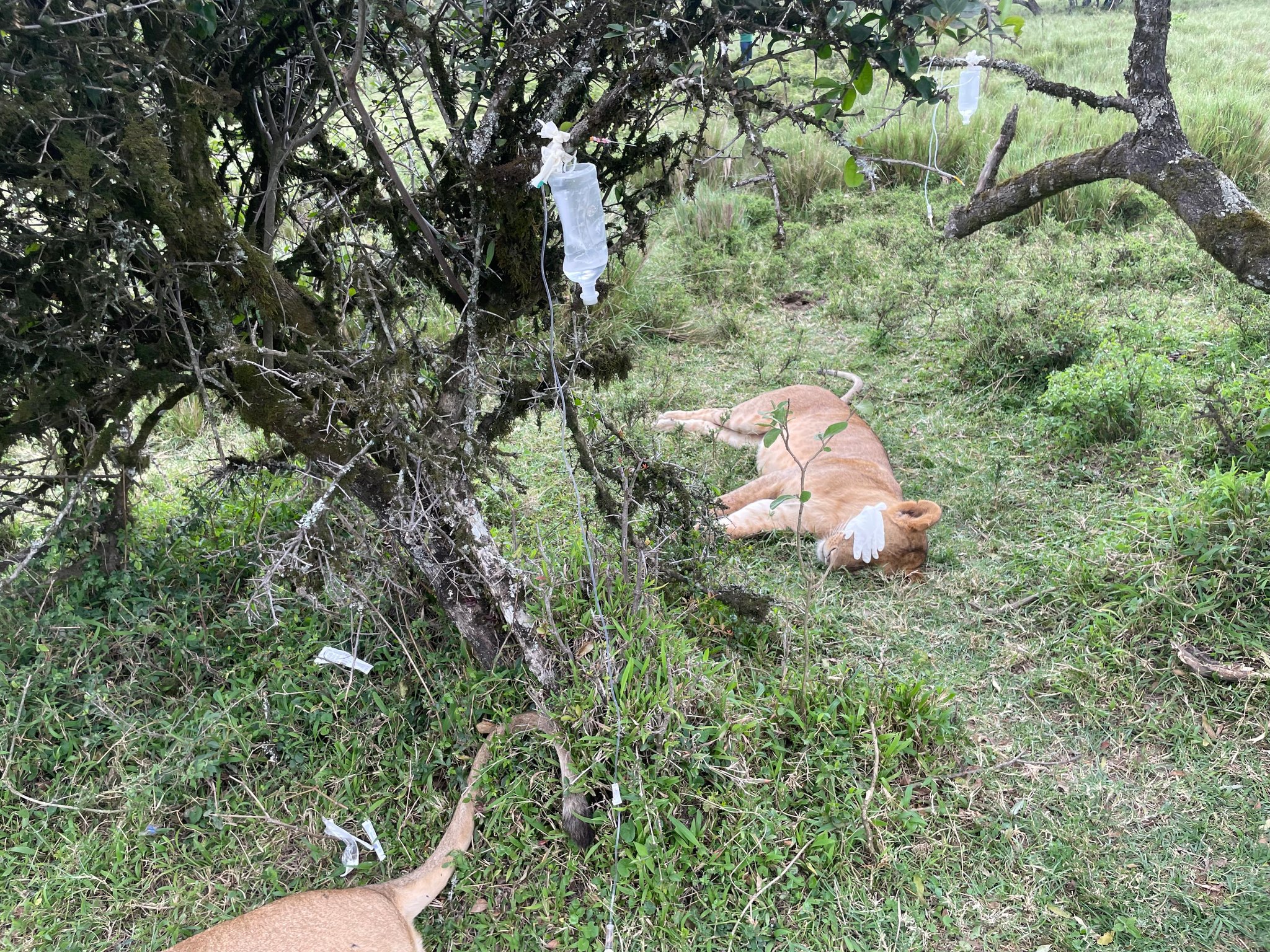 Six lions poisoned in Olleisukut conservancy
Six lions poisoned in Olleisukut conservancyIn a deeply alarming incident that underscores the growing threats to Kenya’s iconic wildlife, six lions in the Oleisukut Conservancy of the Maasai Mara were discovered showing signs of poisoning.
The Kenya Wildlife Service (KWS) has confirmed that the pride was located in distress, triggering an urgent response from veterinary and field teams.
According to KWS officials, the lions were found exhibiting symptoms consistent with toxic ingestion, prompting fears of deliberate poisoning — a threat that has increasingly become a concern in areas where human-wildlife conflict is prevalent.
Emergency veterinary intervention was immediately initiated. KWS veterinary experts, supported by local conservation partners, administered life-saving treatment on-site.
Once the lions were stabilized, they were carefully relocated to a secure location for continued monitoring and recovery.
Fortunately, all six lions survived the incident. Of the affected animals, four have since made a full recovery and are reportedly in good health. The remaining two are still under close veterinary observation but are responding well to treatment.
"This could have ended in tragedy. The swift action by our team, combined with support from partners on the ground, prevented the loss of an entire pride," said a KWS spokesperson.
"We remain deeply concerned about the source of the poisoning and are treating this as a serious matter."
Investigations are currently underway to determine the cause and source of the poisoning. While intentional poisoning of predators often stems from retaliatory actions related to livestock predation, KWS has not ruled out other motives.
Authorities are appealing to local communities to report any suspicious activity and to refrain from using poison in conflict resolution.
" Kenya Wildlife Service remains steadfast in its mandate to conserve and protect Kenya’s iconic species. Investigations into the source of the poisoning are ongoing, with continuous monitoring of the pride in place. We reaffirm our commitment to safeguarding our wildlife heritage for current and future generations," the statement said.
The poisoning incident has reignited conversations about the delicate balance between wildlife conservation and human livelihoods in areas adjacent to national parks and conservancies.
Community education and coexistence strategies are once again being emphasized as crucial tools in reducing wildlife-related conflicts.
The Kenya Wildlife Service has reiterated its commitment to safeguarding the nation’s natural heritage and protecting its wildlife for future generations.
Regular patrols and monitoring efforts have been increased in and around the Oleisukut Conservancy as investigations continue.
This incident is a stark reminder of the challenges facing conservation today, but it is also a testament to what swift, coordinated action can achieve when lives are on the line.
The suspected poisoning of six lions in the Oleisukut Conservancy has occurred just days after free entry was introduced to the National Park, raising fresh concerns over the impact of increased human activity on wildlife.
While investigations are ongoing, conservationists fear the policy may have inadvertently compromised park security and heightened risks to vulnerable species.













